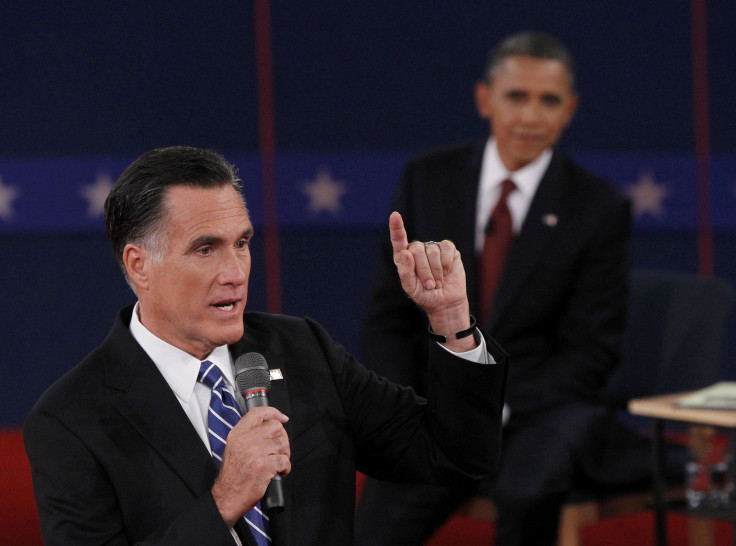Just How True Were Mitt Romney’s Oil And Gas Claims?

U.S. President Barack Obama and his Republican challenger Mitt Romney sparred over oil and gas prices in Tuesday night’s second presidential debate for 2012, with the latter claiming the former hasn’t been “Mr. Oil or Mr. Gas or Mr. Coal.”
But just how true are Romney’s claims?
It is not the first time that both men have been at odds on the issue of oil and gas. The topics were raised earlier this year, when the right-leaning group Crossroads GPS released an ad accusing the Obama administration of having “bad energy policies” that result in prices that are unaffordable.
Debate moderator Candy Crowley revived the argument last night when she asked whether it is true that it is not the job of the U.S. Energy Department to help lower gas prices.
Obama responded, saying it is most important for America to take control of its own energy. He also added that since his presidency, oil production has increased to the highest levels in 16 years.
“Now, I want to build on that,” Obama said in the town hall-style debate in New York. “And that means, yes, we still continue to open up new areas for drilling. We continue to make it a priority for us to go after natural gas. We’ve got potentially 600,000 jobs and 100 years’ worth of energy right beneath our feet with natural gas.
He stressed that this can be done in an environmentally sound way.
“But we’ve also got to continue to figure out how we have efficiency energy, because ultimately that's how we're going to reduce demand and that's what's going to keep gas prices lower,” Obama said.
Romney charged that while there has been additional oil production, none of it came from federal land.
“As a matter of fact, oil production is down 14 percent this year on federal land, and gas production was down 9 percent,” Romney said. “Why? Because the president cut in half the number of licenses and permits for drilling on federal lands, and in federal waters.”
“Look, I want to make sure we use our oil, our coal, our gas, our nuclear, our renewables,” he later added. “I believe very much in our renewable capabilities; ethanol, wind, solar will be an important part of our energy mix. But what we don't need is to have the president keeping us from taking advantage of oil, coal and gas. This has not been Mr. Oil, or Mr. Gas or Mr. Coal.”
Romney’s claims are somewhat true, but while there was a production decline this year, there was an increase in the first two years of Obama’s term.
As the nonpartisan PolitiFact pointed out in April, the average oil production for the first three years of Obama’s presidency is a 13 percent increase over the average production over the last three years of the George Bush administration.
PolitiFact found that between 2004 and 2008 (during the Bush years), oil production on federal lands and waters also fell in four of five years. That resulted in a net decrease of 16.8 percent. On the contrary, from 2009 to 2011, during Obama’s tenure, oil production grew two of three years, resulting in a net increase of 10.6 percent.
So Who Should Be Blamed?
Blaming Obama for the high prices at the pump is just as untrue today as it was four years ago, when the Democrats blamed Bush for the same. At the time prices were pushing $4 a gallon, just before the recession.
Oil prices are set globally, that is, they are set based on the world markets.
Organization of the Petroleum Exporting Countries, or OPEC, is responsible for the stabilization of oil markets so that there is “an efficient, economic and regular supply of petroleum to consumers, a steady income to producers and a fair return on capital for those investing in the petroleum industry.”
In other words, these 12-oil producing countries can decide to increase production to ensure that the U.S. is well-supplied, or the group can decrease production to ensure that producers receive a reasonable, fair price for their oil.
© Copyright IBTimes 2024. All rights reserved.





















